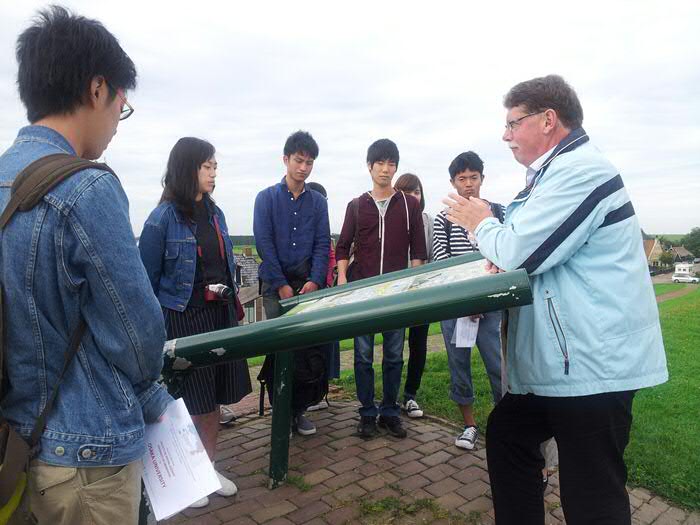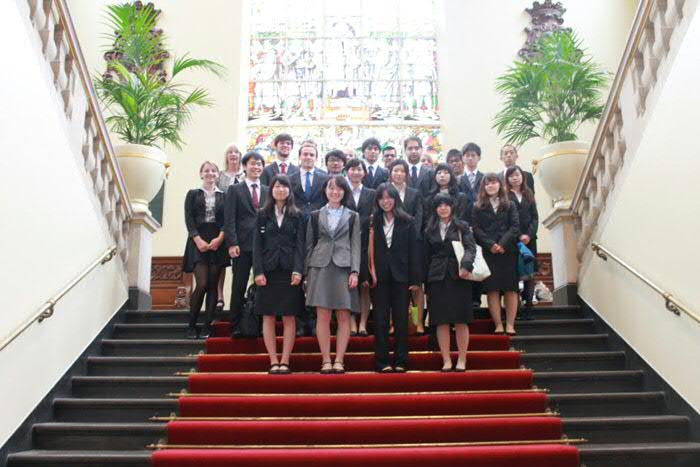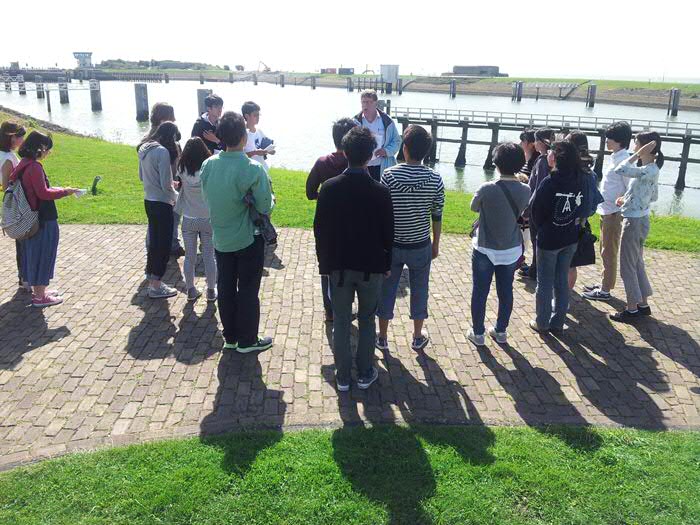Two groups of students from Osaka University visit Groningen

This August - September the University of Groningen is happy to welcome two groups of Japanese students from Osaka University. 17 Japanese students attend the annual English Summer programme at the Faculty of Arts and the Language Centre. As part of the programme, an excursion on water management in The Netherlands is organized by the Faculty of Spatial Sciences. Besides attending English courses and lectures, the students will also enjoy a varied social programme. In that way the Japanese visitors get a flavor of life in the Netherlands.
The 2015 course is the 10th edition of this summer programme which is organized jointly by Osaka University’s European Centre for Academic Initiatives and the University of Groningen.
Japan-Netherlands Student Conference
Furthermore 15 Japanese students attend and co-organize the 6th annual Japan-Netherlands Student Conference, (JNSC, 18-27 August 2015). Each year this conference is organized jointly by Japanese and Dutch students. It consists of attending lectures, giving presentations and attending study-tours. The venue of the JNSC is alternately Osaka or Groningen. In Groningen the conference takes place under supervision of the Center for Japan Studies. The conference allows the participants, who come from different faculties, to gain first-hand experience with the culture of the other country while confronting them with their own cultural values and by engaging in cultural exchange on various levels.
‘The impact of international tensions on our societies’
The main theme of the JNSC of 2015 is ‘The impact of international tensions on our societies’. This theme is divided into four subthemes: security, business, cultural identity and privacy. The participating students select the subtheme of their liking to study, and convey their findings by giving a presentation and participating in discussions with the other students. Because of their respective cultural backgrounds the students are able to offer insights into international conflicts the students from the other participating country might have only heard of, or read about.
It is self-evident that the tensions in Eastern Europe make more headlines in the Netherland than territorial disputes in the East China Sea, while the opposite is true for Japan. By sharing knowledge about these issues the students hope to learn from each other and gain a better understanding about the impact of international tensions on the Dutch and Japanese societies.
Study-tours
The students have planned many study-tours in the Netherlands and Belgium, including visits to: the Groningen City Hall, a Dutch army base, the Japanese Embassy in the Hague, the European Parliament and the European Commission in Brussels. Not only in the lecture hall itself, but also outside is where they hope to accomplish the goal of each conference: promoting cultural exchange and learning from different perspectives.



More news
-
14 February 2026
Tumor gone, but where are the words?
-
19 January 2026
Digitization can leave disadvantaged citizens in the lurch
